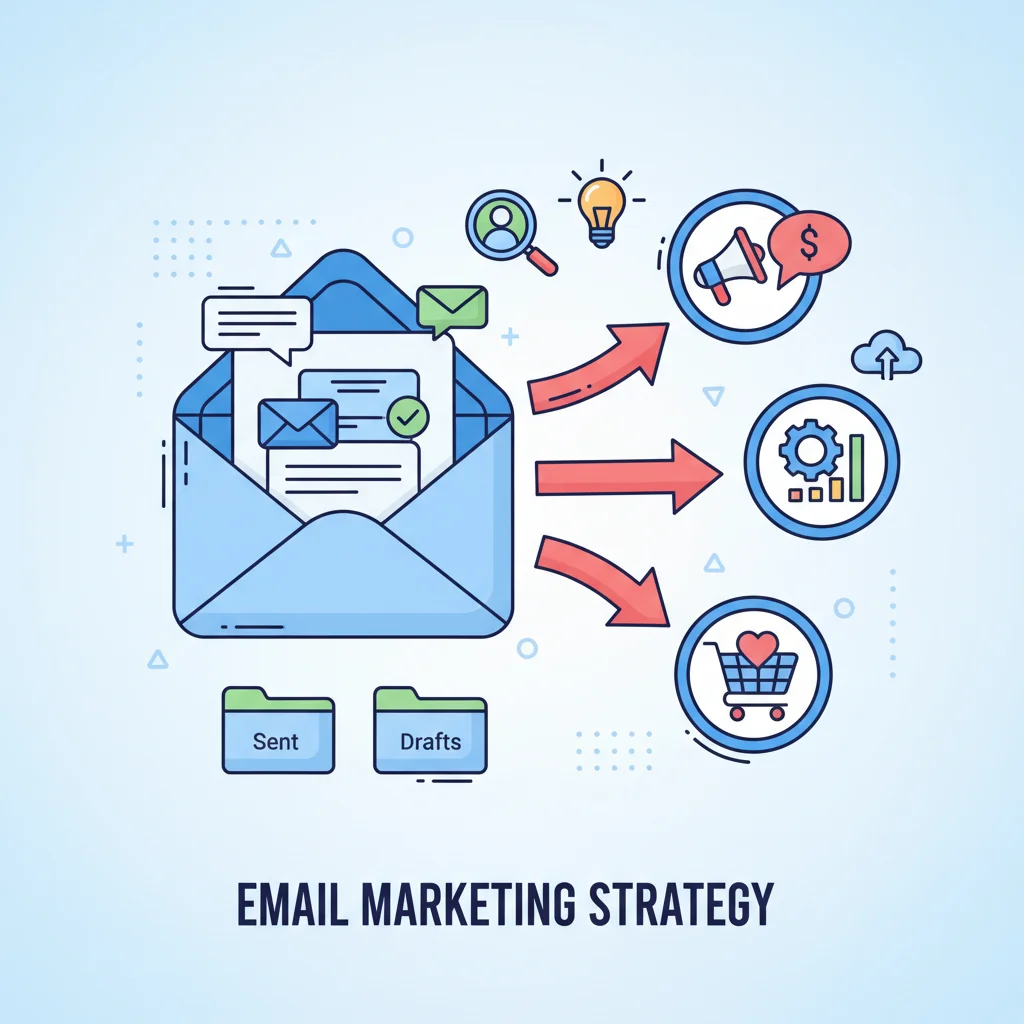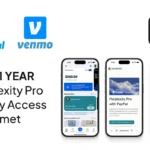Now Reading: 10 Best Email Marketing Tools For E-commerce To Boost Sales
-
01
10 Best Email Marketing Tools For E-commerce To Boost Sales
10 Best Email Marketing Tools For E-commerce To Boost Sales

Want to boost your e-commerce sales without increasing your ad spend? Email marketing delivers the highest ROI of any digital channel-when you use the right tools. The best email marketing tools for e-commerce help you recover abandoned carts, cross-sell related products, and create personalized shopping experiences that convert. I’ve tested these platforms with stores ranging from startups to 7-figure businesses, and I’m sharing my findings to help you choose the perfect solution for your specific needs.
Omnisend
When it comes to the best email marketing tools for e-commerce, Omnisend stands out as a comprehensive solution built specifically for online retailers. I’ve found their pre-built e-commerce automations (they call them “workflows”) to be incredibly effective for my clients.
Key Features:
- Signup forms and landing pages that convert visitors to subscribers
- Product blocks that showcase your merchandise directly in emails
- Pre-built e-commerce automations for abandoned carts, welcome series, and more
- Discount coupon code generation within the platform
- SMS and web push notifications alongside email campaigns
- Segmentation and conditional content for personalized messaging
What makes Omnisend special is how deeply it integrates with major e-commerce platforms like Shopify, BigCommerce, and WooCommerce. Once connected, you can immediately start leveraging your store data to create highly targeted campaigns.
Pricing:
- Free plan: 500 emails to 250 contacts
- 2,000 contacts: $30/month
- 5,000 contacts: $81/month
- 10,000 contacts: $132/month
- 50,000 contacts: $330/month
Pros:
- Comprehensive e-commerce features available out-of-the-box
- Generous free plan with access to almost all features
- Multi-channel marketing capabilities (email, SMS, push notifications)
Cons:
- Deliverability isn’t the strongest based on regular tests
- Advanced reports aren’t updated in real-time (only once daily)
Best For:
Omnisend is ideal for online stores that need a comprehensive email marketing solution with strong automation capabilities. If you’re looking for an all-in-one platform that doesn’t require additional integrations for e-commerce functionality, this is your best bet.
Klaviyo
Klaviyo has become somewhat of a gold standard for e-commerce email marketing, and for good reason. I’ve watched several of my clients scale their businesses dramatically after switching to this platform.
Key Features:
- Powerful segmentation based on customer behavior and purchase history
- Dynamic content that changes based on customer interactions
- Automated workflows triggered by specific customer actions
- Product recommendations that drive additional purchases
- Detailed analytics that tie email performance directly to revenue
- Integration with Facebook and Instagram for cohesive marketing
What really sets Klaviyo apart is its ability to create hyper-personalized customer experiences. The platform excels at using your customer data to deliver the right message at exactly the right time.
Pricing:
- Free plan available for up to 250 contacts
- 500 contacts: $25/month (includes 3,000 emails)
- Pricing increases as your subscriber count grows
Pros:
- Exceptional targeting and segmentation capabilities
- Intuitive drag-and-drop email editor
- Advanced automation features for sophisticated marketing strategies
- Strong integration with e-commerce platforms
Cons:
- Can get expensive as your list grows
- Steeper learning curve for beginners
Best For:
Klaviyo is perfect for growing and established e-commerce businesses that want to leverage customer data for highly personalized marketing. It’s particularly valuable for stores with repeat purchase potential, as its segmentation capabilities can significantly increase customer lifetime value.
Useful Articles:
ActiveCampaign
I’ve recommended ActiveCampaign to many of my e-commerce clients who need sophisticated automation capabilities without the enterprise-level price tag. This platform strikes a nice balance between power and usability.
Key Features:
- Advanced automation workflows with conditional logic
- CRM functionality built into the platform
- Predictive sending to optimize email delivery times
- Split testing capabilities for continuous optimization
- Site tracking to capture visitor behavior
- Deep data integration with e-commerce platforms
The automation builder is where ActiveCampaign truly shines. You can create complex, branching workflows based on customer behavior that would be impossible in many other platforms.
Pricing:
- Starts at $19/month
- 5,000 contacts: approximately $81/month
- 10,000 contacts: approximately $132/month
Pros:
- Strong automation features with visual workflow builder
- Excellent segmentation options
- Good deliverability rates
- Integrates well with major e-commerce platforms
Cons:
- Interface can be overwhelming for beginners
- No free plan (only a 14-day trial)
- Can get expensive as your list grows
Best For:
ActiveCampaign is ideal for e-commerce businesses that need sophisticated marketing automation but don’t want to invest in enterprise-level solutions like HubSpot. It’s particularly well-suited for stores with complex customer journeys that require nuanced messaging.
GetResponse
GetResponse has evolved from a simple email marketing tool into a comprehensive marketing platform that works particularly well for e-commerce businesses. I appreciate its balance of functionality and ease of use.
Key Features:
- Conversion funnels that combine landing pages, forms, and emails
- Product recommendations and promo codes in emails
- AI-powered targeting to reach the right customers
- Webinar hosting capabilities (unique among email platforms)
- Autoresponders and marketing automation workflows
- E-commerce segmentation based on purchase history
The conversion funnel feature is particularly valuable for e-commerce, as it allows you to create complete customer journeys from acquisition to purchase.
Pricing:
- 30-day free trial
- Basic plan starts at $19/month
- Higher tiers available with additional features
Pros:
- Easy to use for beginners
- Good e-commerce integrations
- AI-powered insights to improve campaigns
- All-in-one marketing solution
Cons:
- Some advanced features cost extra
- Pricing increases significantly for larger lists
- Learning curve for utilizing all features
Best For:
GetResponse works well for e-commerce businesses that want an all-in-one marketing solution beyond just email. It’s particularly good for stores that also use webinars or need landing pages as part of their marketing strategy.
Useful Articles:
MailerLite
MailerLite has earned my recommendation for many small e-commerce businesses due to its simplicity and affordability. Don’t let the “Lite” in the name fool you-this platform packs a punch.
Key Features:
- Clean, intuitive interface that’s easy to navigate
- Drag-and-drop email editor with pre-built blocks
- E-commerce integrations with major platforms
- Product blocks with various layout options
- Automation workflows for basic e-commerce scenarios
- Website and landing page builder included
What I love about MailerLite is how they’ve focused on making the essential features work extremely well, rather than adding complexity with bells and whistles.
Pricing:
- Free plan: Up to 1,000 subscribers
- 2,500 contacts: $25/month
- 5,000 contacts: $39/month
- 10,000 contacts: $73/month
- 15,000 contacts: $109/month
Pros:
- Generous free plan with automation capabilities
- Excellent email deliverability (top performer in recent tests)
- Easy-to-use interface perfect for beginners
- Product blocks with price strikethrough formatting for sales
Cons:
- Limited e-commerce automation capabilities compared to specialized tools
- Basic reporting features
- No social media or conversion tracking reports
Best For:
MailerLite is perfect for small to medium e-commerce businesses that want a straightforward, affordable email marketing solution. It’s especially good for beginners or those who don’t need complex automation scenarios.
Mailchimp
Mailchimp is probably the most recognizable name in email marketing, and while it’s evolved beyond its roots, it remains a solid choice for many e-commerce businesses. I’ve seen it work particularly well for stores that need multi-channel marketing capabilities.
Key Features:
- User-friendly email campaign builder
- E-commerce-specific emails (abandoned cart, order confirmations)
- Customer journey builder with pre-made templates
- Social media and digital ad management
- Store building capabilities (though with transaction fees)
- Multivariate A/B testing
One thing that sets Mailchimp apart is its expansion beyond email into a full marketing platform, which can be valuable for businesses looking to consolidate their marketing tools.
Pricing:
- Limited free plan available
- Essentials plan: $13/month for 500 contacts
- Standard plan: $20/month with more features
- 2,500 contacts: $45/month
- 10,000 contacts: $110/month
- 30,000 contacts: $300/month
Pros:
- Direct integration with product data
- E-commerce-specific automation triggers
- Pre-built customer journeys for quick implementation
- Comprehensive marketing platform beyond just email
Cons:
- Charges for inactive and unsubscribed contacts
- Contact management across lists is challenging
- Gets expensive quickly as your list grows
- Limited free plan compared to competitors
Best For:
Mailchimp works best for e-commerce businesses that want to manage multiple marketing channels (email, social, ads) from a single platform. Its user-friendly interface makes it accessible for beginners, though the pricing may push growing businesses toward other options.
Useful Articles:
Brevo (formerly Sendinblue)
Brevo has been my go-to recommendation for e-commerce businesses on a tight budget that still need powerful features. Their pricing model based on email volume rather than contact count can be a game-changer for certain businesses.
Key Features:
- Transactional and marketing emails in one platform
- SMS and WhatsApp campaign capabilities
- Conditional content blocks for personalization
- E-commerce dashboard with sales tracking
- Real-time cart and checkout tracking
- Landing page and signup form creation
The combination of transactional and marketing emails in one platform is particularly valuable for e-commerce businesses that need both types of communication.
Pricing:
- Free plan: 300 emails/day
- Lite plan: $9/month for 5,000 emails
- Premium plan: $29/month for 20,000 emails
- Higher volume plans available
Pros:
- Affordable pricing based on email volume, not contacts
- Multi-channel marketing (email, SMS, WhatsApp)
- Transactional emails included even in free plan
- Real-time e-commerce dashboard
Cons:
- Limited segmentation options compared to competitors
- Can’t capture product variant information
- No product reviews feature
- Integration with Shopify through PushOwl can be confusing
Best For:
Brevo is ideal for budget-conscious e-commerce businesses that need both marketing and transactional emails. It’s also great for stores that want to incorporate SMS marketing without adding another tool to their stack.
Drip
Drip was built from the ground up for e-commerce, and it shows in every feature. I’ve found it particularly effective for stores that want to create highly personalized customer experiences.
Key Features:
- Visual workflow builder for complex automations
- Revenue attribution to see exactly which emails drive sales
- Personalized product recommendations
- Pre-built playbooks for common e-commerce scenarios
- Onsite campaigns to build and engage your list
- Seamless integration with major e-commerce platforms
What makes Drip special is its focus on revenue-generating automations rather than just sending newsletters.
Pricing:
- 14-day free trial
- Starting at $39/month for up to 2,500 subscribers
- Pricing increases with subscriber count
Pros:
- Purpose-built for e-commerce
- Powerful automation capabilities
- Excellent revenue tracking and attribution
- Strong personalization features
Cons:
- Higher starting price point than many competitors
- Steeper learning curve for beginners
- No free plan
Best For:
Drip is perfect for established e-commerce businesses that want to leverage customer data for sophisticated, revenue-focused marketing automation. It’s particularly valuable for stores with complex product catalogs that benefit from personalized recommendations.
HubSpot
HubSpot offers a comprehensive marketing platform that includes powerful email marketing capabilities. While it comes with a higher price tag, I’ve seen it transform e-commerce businesses that need a complete CRM and marketing solution.
Key Features:
- Built-in CRM with detailed customer profiles
- Advanced segmentation and targeting options
- Attribution reporting to track marketing effectiveness
- Dynamic content for personalized emails
- Landing pages and forms that integrate with your CRM
- Complete marketing, sales, and service hub
The integration between marketing, sales, and customer service makes HubSpot uniquely powerful for businesses that need to align these functions.
Pricing:
- Free plan with limited features
- Marketing Hub Starter: $18/month for 1,000 contacts
- Marketing Hub Professional: $800/month for 2,000 contacts
- Enterprise plans available for larger businesses
Pros:
- Comprehensive CRM with detailed customer profiles
- Advanced segmentation capabilities
- Powerful attribution reporting
- All-in-one platform for marketing, sales, and service
Cons:
- Extremely expensive for full marketing automation features
- Limited automation actions in lower-tier plans
- Dynamic abandoned cart content only works with Shopify
- Third-party app needed for BigCommerce integration
Best For:
HubSpot is best suited for larger e-commerce businesses with substantial marketing budgets that need a complete CRM and marketing solution. It’s particularly valuable for Shopify stores that can leverage its specialized integration.
Constant Contact
Constant Contact has been around for decades, and while it’s not the flashiest option, I’ve found it to be reliable and straightforward for e-commerce businesses that need simplicity.
Key Features:
- Drag-and-drop email editor with 300+ templates
- List management and segmentation tools
- Automated email sequences
- Event marketing capabilities
- Social media marketing integration
- Survey and poll creation
The platform’s longevity has allowed it to develop a robust set of features while maintaining ease of use.
Pricing:
- 2-month free trial
- Basic version: $9.99/month
- Plus version: $45/month
Pros:
- Easy-to-use drag-and-drop editor
- Strong list management tools
- Automation features for welcome emails and nurturing
- Integration with social media platforms
Cons:
- Limited advanced features compared to e-commerce specialists
- Basic reporting capabilities
- Higher price point for what you get
Best For:
Constant Contact is ideal for small e-commerce businesses that prioritize ease of use over advanced features. It’s particularly good for stores that also do event marketing or need integrated social media campaigns.
Comparison Of The Best Email Marketing Tools For E-commerce
| Tool | Free Plan | Starting Price | Best Feature | Best For | Deliverability |
|---|---|---|---|---|---|
| Omnisend | Yes (250 contacts) | $30/month | Pre-built e-commerce workflows | Comprehensive solution | Average |
| Klaviyo | Yes (250 contacts) | $25/month | Dynamic content personalization | Data-driven marketing | Good |
| ActiveCampaign | No (14-day trial) | $19/month | Advanced automation builder | Complex customer journeys | Excellent |
| GetResponse | No (30-day trial) | $19/month | Conversion funnels | All-in-one marketing | Good |
| MailerLite | Yes (1,000 contacts) | $25/month | Simplicity and ease of use | Beginners & small stores | Excellent |
| Mailchimp | Yes (limited) | $13/month | Pre-made customer journeys | Multi-channel marketing | Good |
| Brevo | Yes (300 emails/day) | $9/month | SMS & WhatsApp campaigns | Budget-conscious stores | Average |
| Drip | No (14-day trial) | $39/month | Revenue attribution | Revenue-focused marketing | Good |
| HubSpot | Yes (limited) | $18/month | CRM integration | Large businesses | Good |
| Constant Contact | No (2-month trial) | $9.99/month | Event marketing options | Simplicity-focused stores | Average |
Choosing the best email marketing tools for e-commerce ultimately depends on your specific needs, budget, and technical expertise. For small businesses just starting out, MailerLite or Brevo offer excellent value. Growing stores with more sophisticated needs might find Omnisend or Klaviyo to be the perfect fit. And larger enterprises with complex requirements could benefit from ActiveCampaign or HubSpot’s robust capabilities. Whichever tool you choose, the key is to actually use it consistently-even the most powerful platform won’t drive sales if your campaigns aren’t getting sent!





















